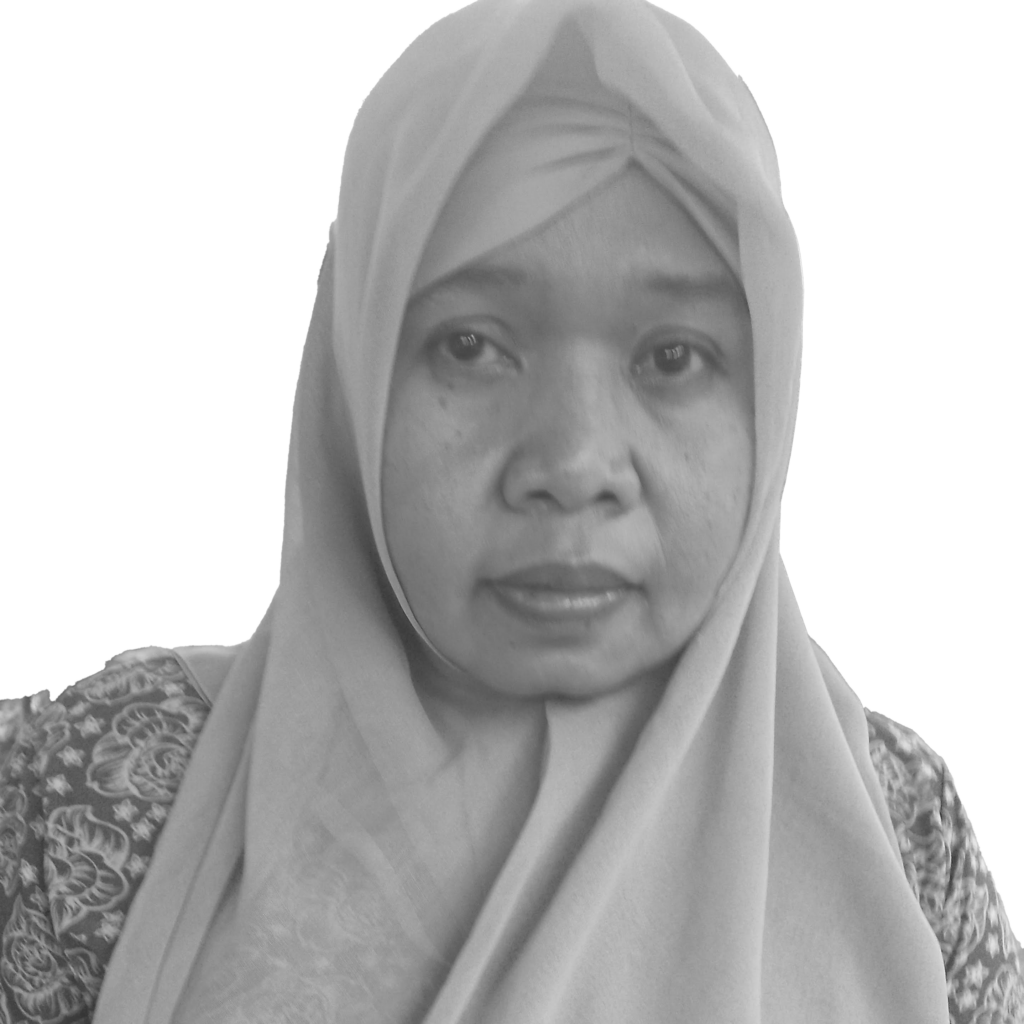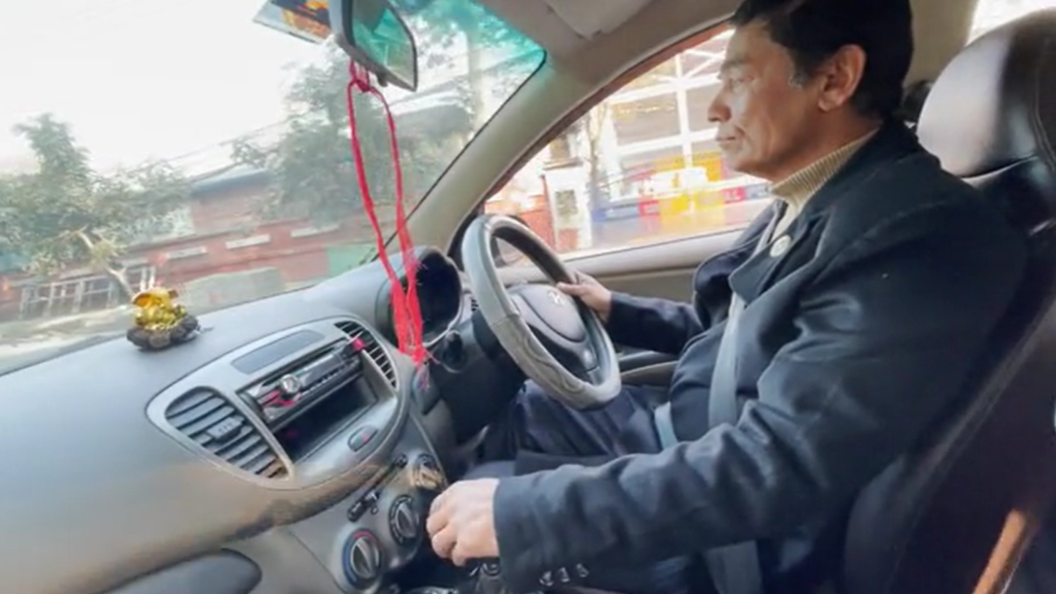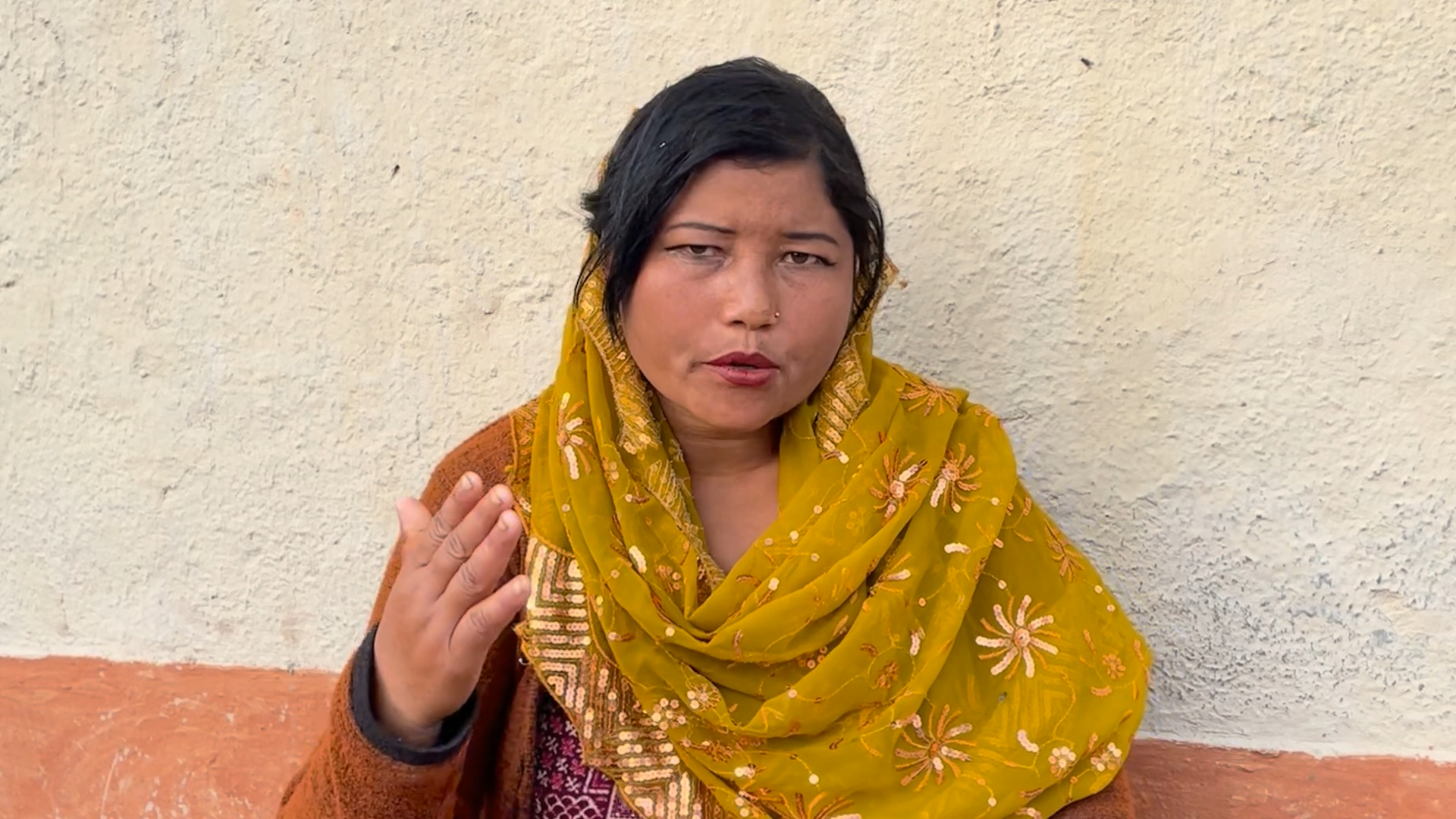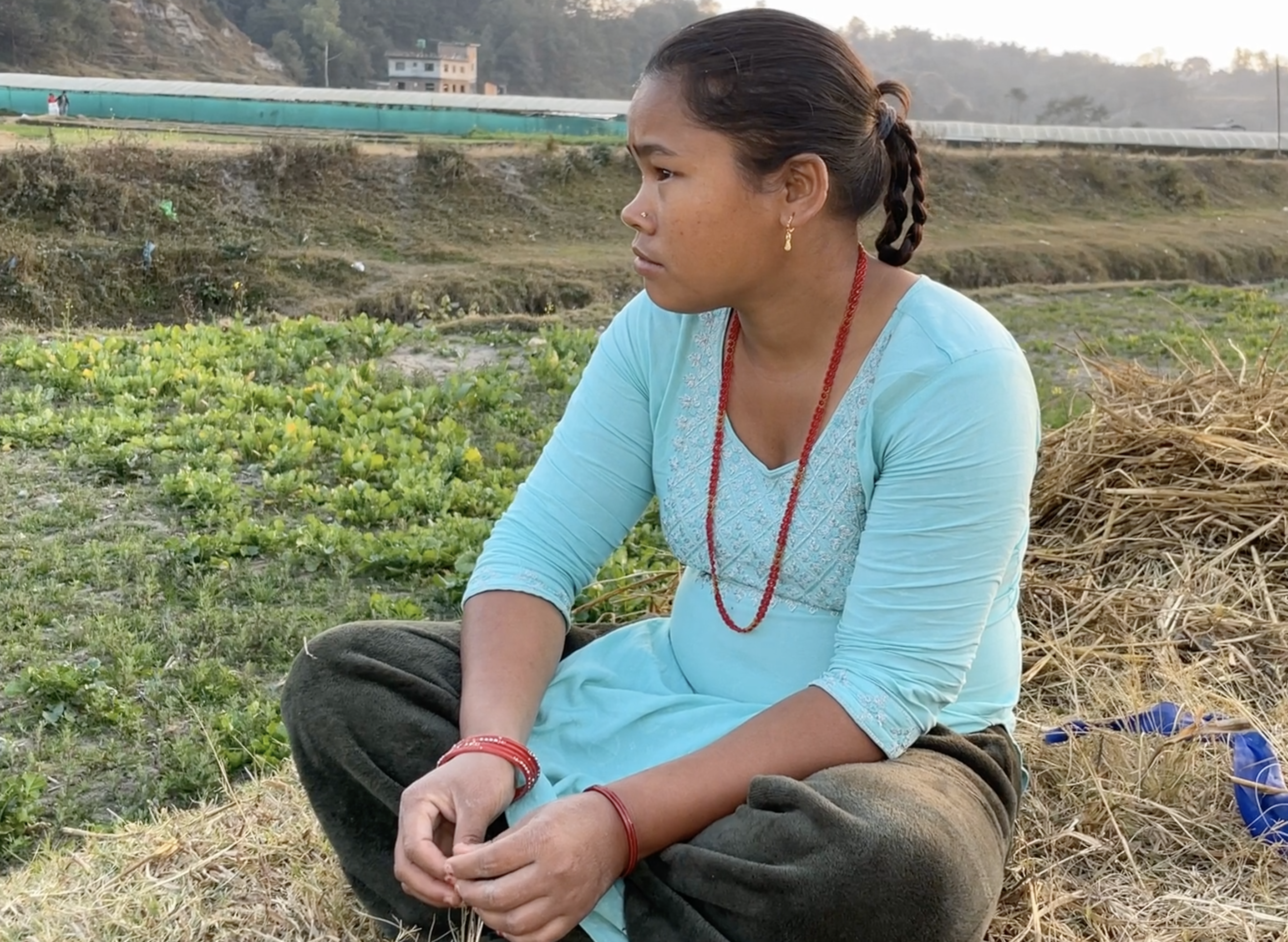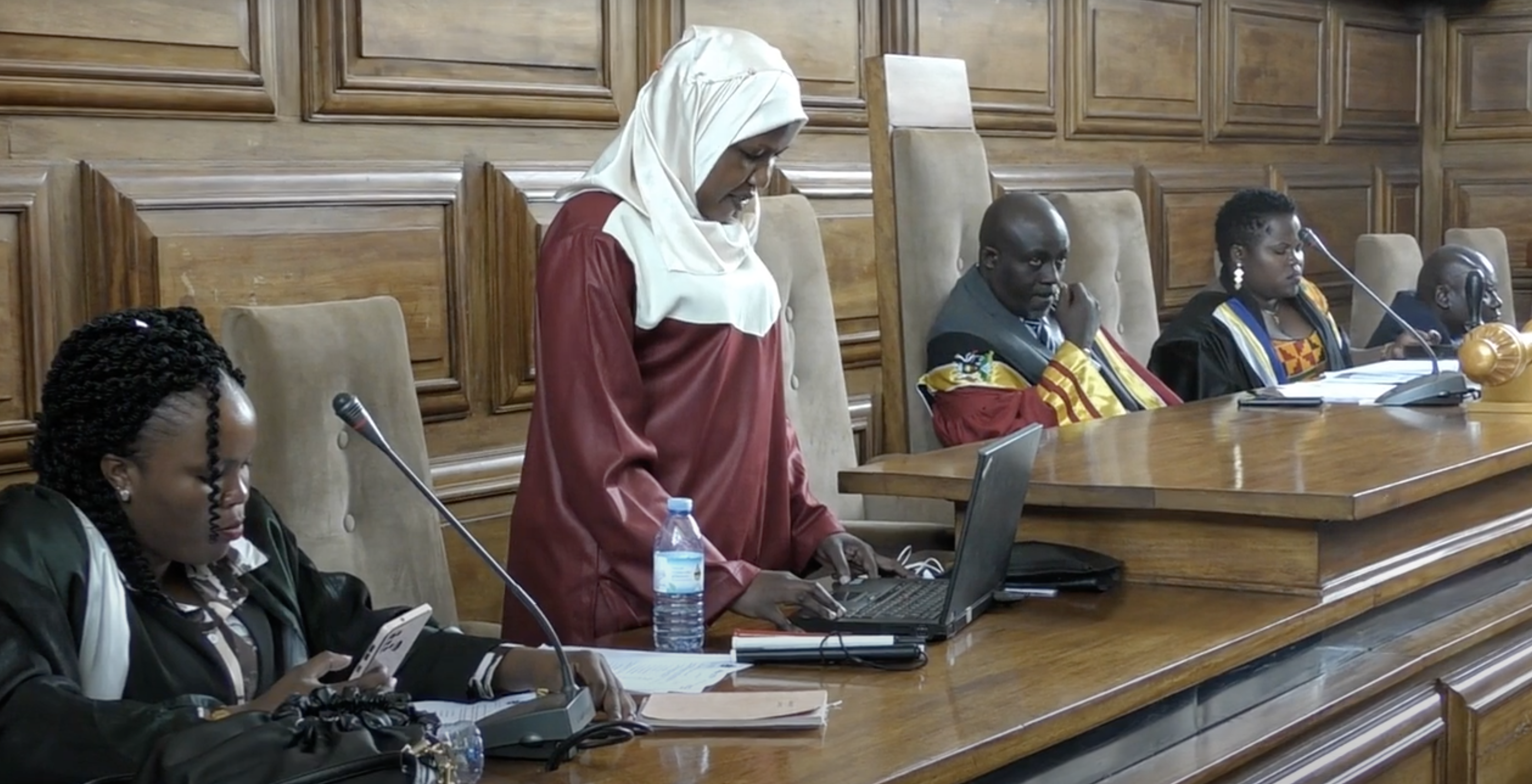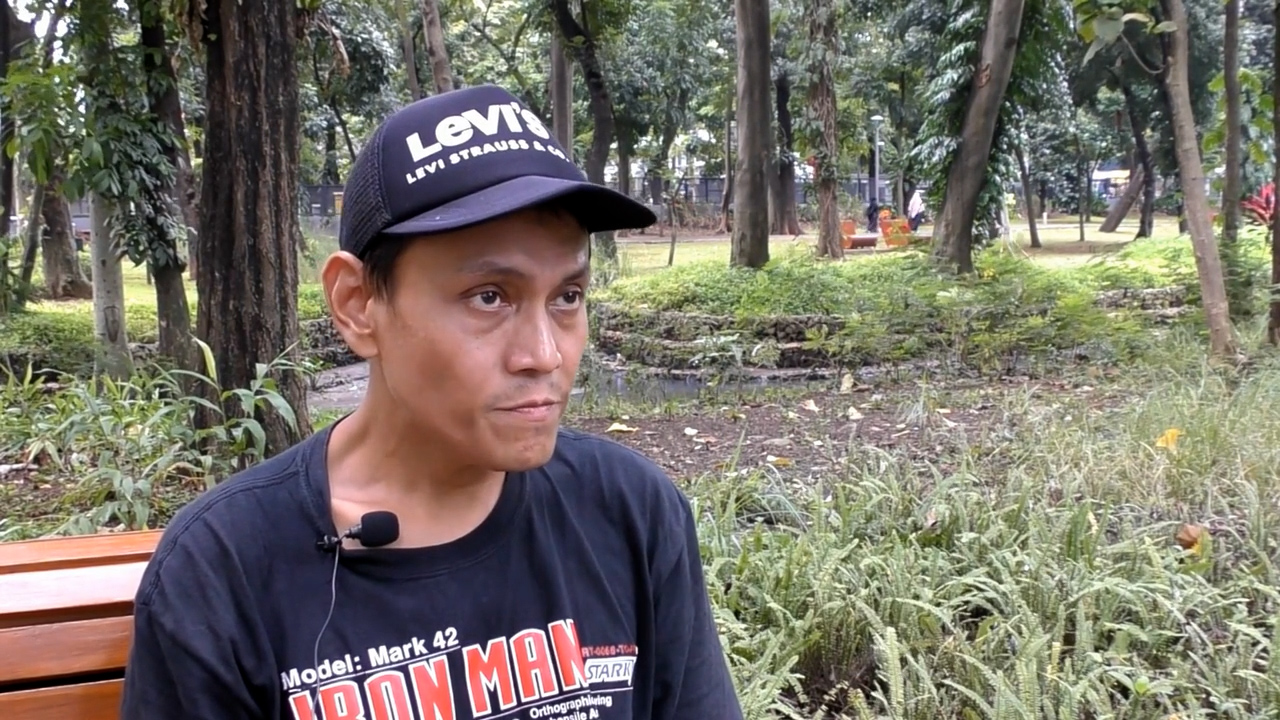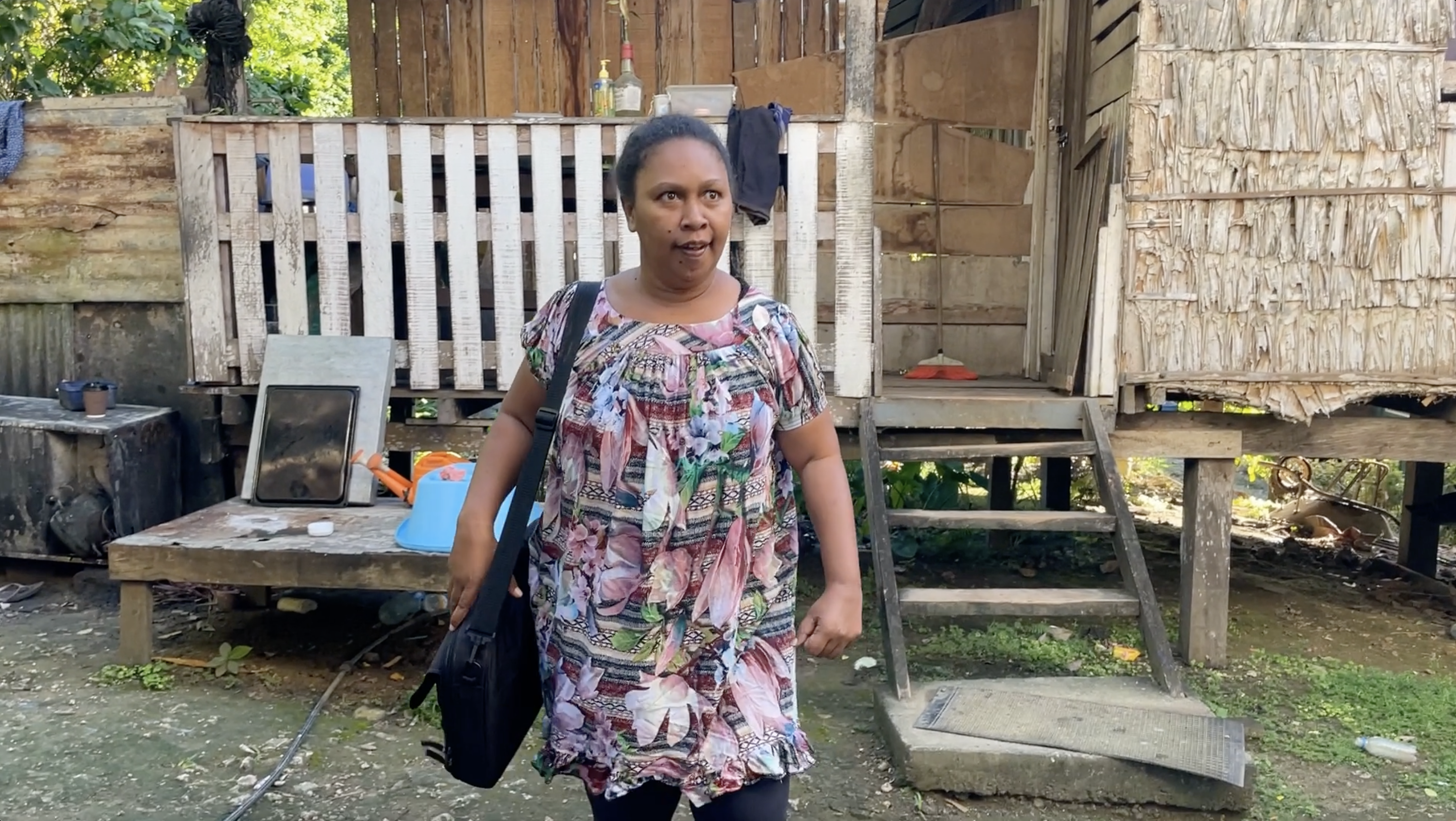Transcript for Healthcare Ensured
The video starts with an aerial shot of a highway and a blue-and-white monument in the city of Mataram in West Lombok District, Indonesia. Audio of a car revving plays in the background. Soft piano music plays in the background, too.
Fade to black text on a yellow screen that says, “Over the last decade, Indonesia has reformed its national health insurance system to provide healthcare coverage for all Indonesians.”
Fade to black text on the same yellow screen that says, “However, Indonesians with disabilities still don’t have equal access to healthcare.”
Fade to black text on a yellow screen that says, “Sustia Rini is a 37-year-old woman with a disability and a mother of four. When she first applied for mandatory health insurance as an individual payer, she was charged $8 a month by Indonesia’s Health Care and Social Security Agency (BPJS).”
Fade to black text on a yellow screen that says, “With no steady income, she struggled to make payments.”
Fade to Sustia Rini, an Indonesian woman wearing a multi-colored hijab, standing in a room and speaking to the camera in Bahasa Indonesia: “In 2013 I made a BPJS Mandiri card by taking Class II [level of services].” A red curtain and a cabinet of office items are behind her.
Cut to the exterior of the West Lombok public health office. A parked car is at the entrance of the office. A red chair and a brown table are next to the entrance. A man walks across the office.
Cut to a sign on the exterior of the public health office that says, “BHAKTI HUSADA COOPERATIVE SECRETARIAT, WEST LOMBOK HEALTH DEPARTMENT,” in Bahasa Indonesia. A “Ministry of Health of the Republic of Indonesia” informational poster in Bahasa Indonesia is on the right.
Cut to Rini speaking in the room. “The installment was 42,000 [rupiah]. At that time, my husband and I and my third child were included in BPJS Independent.”
Cut to black text on a yellow screen that says, “Eventually, Rini stopped making payments to BPJS. Everyone in her family was healthy, so she didn’t see the need for health insurance. Then one of her children became sick, and she had no way to pay the hospital bills.”
Cut to cars passing by a tree-lined street in Mataram. A man sits on one of several brown benches on the sidewalk. A few people move by the sidewalk. Rini’s voiceover continues, “In 2015, my first child was sick and needed hospital treatment.”
Cut to Rini speaking.
Fade to black text on a yellow screen that says, “Rini applied for free health care known as PBI. She was denied for several reasons.”
Cut to Rini speaking, “The Mataram City Health Office explained that for 2015, there was no program from PBI in the Mataram City area.”
Cut to a pan shot of Rini walking towards the front entrance of the Regional Health Laboratory. She is wearing a black hijab. Several cars and motorcycles are parked next to the laboratory.
Fade to black text on a yellow screen that says, “Because Rini had stopped making payments to BPJS as an individual payer, she also owed the government money. She was told that until she paid off her debt, she would not be eligible for PBI.”
Fade to black text on a yellow screen that says, “In June, the Disability Justice Project visited the West Lombok District Health Office, where Nurse H. Zuljipli, secretary of the West Lombok District Health Office, explained that Rini was mistaken.” Soft piano music transitions to upbeat piano music for the rest of the video.
Fade to black text on a yellow screen that says, “The Health Office had changed its policy in 2020. Now anyone who needs free healthcare can receive it whether they owe money or not.”
Cut to a black-and-brown sign on the side of a busy street. The sign says, “WEST LOMBOK DISTRICT GOVERNMENT / DISTRICT HEALTH OFFICE. WEST LOMBOK” in Bahasa Indonesia.
Cut to the exterior of the West Lombok public health office. A red chair and a brown table are at the entrance. Two people are seated at a reception desk.
Cut to Nurse H. Zuljipli, an Indonesian man, sitting in an office and speaking to the camera in Bahasa Indonesia: “To answer your question earlier related to the BPJS PBI program in West Lombok, it is a form of presence and support for the people of West Lombok.” A brown cabinet stacked with papers and binders is in the background.
Cut to four men and four women meeting around a long brown table at the West Lombok health office. The women are wearing hijabs.
Cut to Zuljipli speaking in the office, “It is recorded that she has a lot of debts and unable to pay them, but when she is sick, needs financing, needs service, she is accommodated. She can be transferred [into PBI free healthcare] her status does not require her to pay the debts first, but still being considered as debts [owed to the government].”
Cut to a “Ministry of Health of the Republic of Indonesia” informational poster in Bahasa Indonesia at a health office.
Cut to a sign on the exterior of a health office that says, “FIELD OF HEALTH RESOURCES” in Bahasa Indonesia.
Cut to Zuljipli speaking, “This is when the regulation came to allow it, we have done that since 2020. People who used to be independent [payers], although having debts due to not paying the premiums, we can still serve them.”
Cut to Rini walking up to a woman wearing a white hijab at the West Lombok public health office’s reception desk. She sits down on a chair. A man at the reception desk occupies another chair.
Fade to black text on a yellow screen that says, “Now Rini and other West Lombok citizens are in the process of applying for free health care.”
Cut to Rini smiling and speaking to the camera, “I am very happy because I can make BPJS PBI without paying arrears.” Rini’s black hair is in a pulled-back hairstyle.
Fade to black text with a yellow border on a black screen that says, “Copyright – @2022 HWDI. All rights reserved.”
Fade to black text with a yellow border on a black screen that says, “Made with support from the Disability Justice Project and Disability Rights Fund.” The Disability Justice Project logo is a large yellow “D” with a black play button in the middle to signify video storytelling, and white text says “Disability Justice Project” on the bottom left. The Disability Rights Fund logo – a white box with black text that says, “Disability Rights Fund” – is on the bottom right of the screen.
